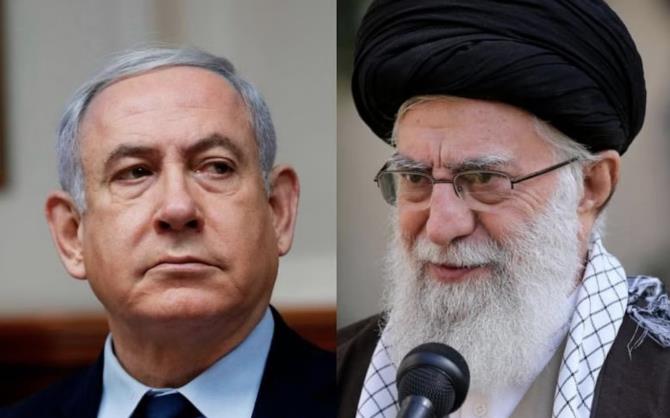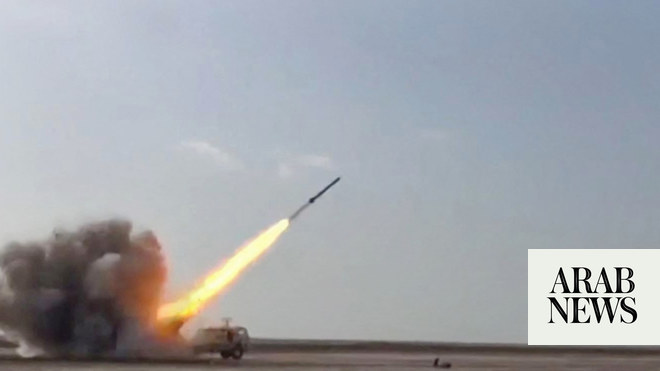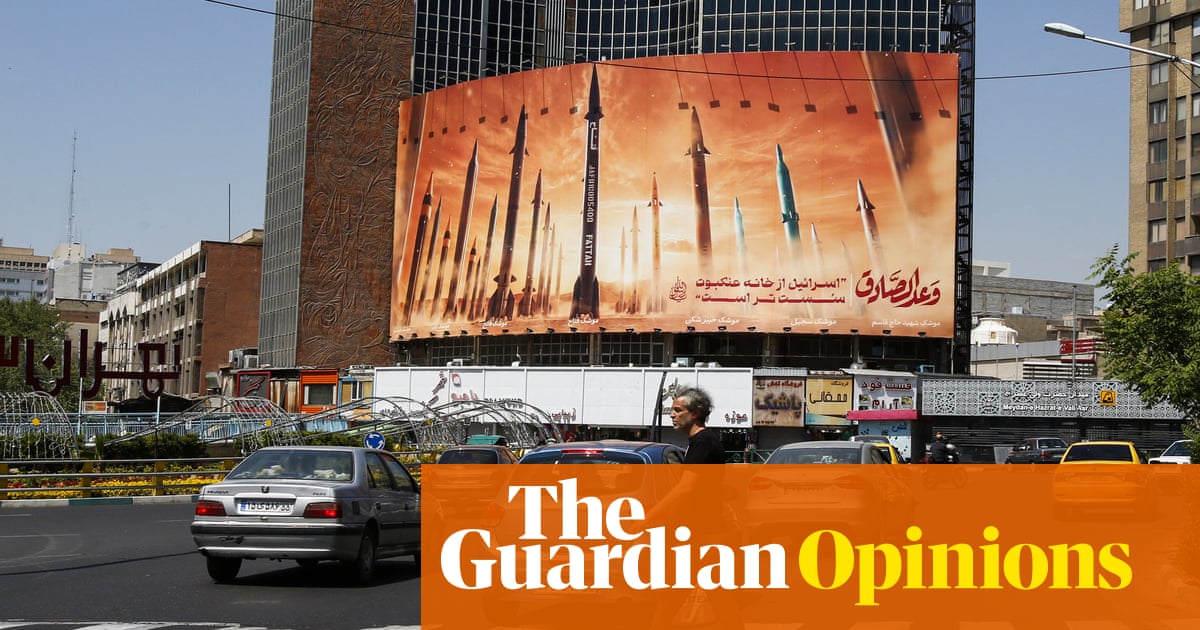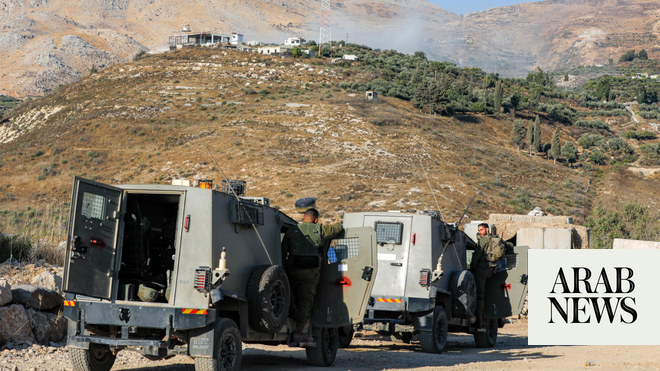
Following the first direct military confrontations between Israel and Iran, which have taken place over the past two weeks, commentators have been debating whether the exchanges ended in a draw, or whether one of the nations gained the advantage.
While this question will continue to dominate the headlines for a while, the more pertinent question is whether both sides have, at least for now, saved enough face to step back from the brink, or whether they, and the rest of the Middle East, continue to stare into the abyss of a full-blown war that could drag the entire region into the conflict.
The simple answer is that neither side is interested in such a confrontation, and both are conveying, in their own peculiar ways, this lack of desire or intention to escalate the situation any further, while doing very little to at least de-escalate the rhetorical battle between them.
One consistent aspect of the relations between these two sworn enemies is that neither of them trusts the intentions of the other, and so they continue to send mixed messages through their behavior. Moreover, the events in recent weeks cannot be considered outside the broader regional context, in particular the war in Gaza, the escalation of the conflict between Israel and Hezbollah along the Israeli-Lebanese border, and the destabilizing activities carried out by Iran through its proxies in the region.
The presumed Israeli airstrike that hit an Iranian diplomatic mission in Damascus at the start of this month and killed several senior Islamic Revolutionary Guard Corps officers could easily be seen as an act of escalation because of where it took place — after all, embassies, consulates and diplomatic missions are regarded as sovereign territory — and the seniority of those killed.
However, Tehran has held fire on several previous occasions when assassinations of senior Iranian military personnel and leading scientists, in some cases on Iranian soil, were attributed to Israel.
This suggests either that the Iranian regime considered the attack on its consulate in Damascus as the straw that broke the camel’s back, and the pressure within its own ranks not to lose face and to take deterrent action was overwhelming, or that it sensed an opportune moment to catch Israel at the weakest it has been for a long time, as a result of the military and diplomatic consequences of the war in Gaza. In fact, it was most probably a combination of both of these factors that caused Iran to miscalculate.
There is a danger that decision-makers in Israel will similarly draw the wrong conclusions from the international collective efforts to avert the Iranian drone and missile strikes on Israel.
If there is one thing that Iran and Israel have in common, it is an aggressive sense of insecurity that borders on paranoia.
Yossi Mekelberg
Some have argued, wrongly in my view, that Iran’s decision to launch its attack was no more than an elaborate piece of theater, given that Israel and the US, along with other countries in the region, were informed of the strikes in advance, giving them time to minimize the resulting damage. There is, therefore, a strong sense that this was a drama the script for which was known to all the protagonists.
Even if that were the case, such a scenario can be successful only as long as everyone plays their part to perfection — and the attack on Israel could have ended in a major disaster. The launch of about 350 lethal weapons was not a low-key operation. It is only because, as has been reported, 99 percent of the drones and missiles were intercepted that the damage was minimized, which then allowed Israel to respond in a more measured way, without even explicitly taking responsibility for its response.
There might have been a very different outcome to Iran’s attack, intended or not. It could have resulted in massive damage to Israeli military facilities and might even have erroneously hit a major population center.
The only known serious injury caused during the attack was to a young girl; had there been more casualties, Israel’s retaliation would have been on a much more extensive scale and could have dragged the US, other Western allies, and the entire region into a wider war.
Iran has proved that it can launch coordinated, long-range drone and missile attacks. However, it miscalculated Israel’s air-defense capabilities and, more crucially, underestimated the ironclad support, in the words of President Joe Biden, of the US in the event of such an attack. This was backed by additional support from the UK and France.
In this sense, Tehran handed Israel both military and political achievements. The justified international criticism of the death and devastation that Israel has sown in Gaza for months, and the humanitarian catastrophe it has inflicted on the people of the territory, clearly has not lessened the West’s commitment to the security of Israel; although for some, the motivation for preventing Iran from hitting Israel hard also stems from the great importance attached to ensuring Israel remains a major military and political force to counterbalance Iran and its axis of resistance.
Moreover, it is feared that had Iran managed to cause widespread devastation with its attack, Israel might have retaliated with its full arsenal of military capabilities, resulting in a more widespread conflict that could have shattered the region and probably the global economy.
Israel can be largely satisfied with the international support it received in defense of its skies and for uniting, at least for now, an alliance that is ready to confront Iran and its proxies. Nevertheless, it would be a serious mistake to think that as a result of this the situation in the Gaza Strip, or even the Palestinian issue as a whole, has been sidelined. If anything, it has illustrated just how dependent Israel is on its allies for its security, and that the defiance shown by Prime Minister Benjamin Netanyahu and some of his mindless ministers toward Washington of late is not only misplaced but a threat to its security.
If there is one thing that Iran and Israel have in common, it is an aggressive sense of insecurity that borders on paranoia. This is partly due to objective historical reasons, some of them tactical, while the rest has more to do with the psychological and domestic considerations of the nations than any sound strategy.
They both see themselves as perpetually facing existential threats and perceive each other as a major source of those threats. As a result, they continually develop capabilities and strategies that instead of de-escalating the tensions between them, simply enhance their mutual image of one another as eternal enemies, which leaves them with almost no space to coexist peacefully in their troubled neighborhood.
Iran continues to develop its military capabilities and a ring of regional proxies, some of which are on Israel’s borders and, therefore, keep Tel Aviv on its toes. Meanwhile, Israel’s strategic DNA is characterized by preemption and proactiveness, anywhere and at any given time. It builds its counter-deterrent capabilities but is over-reliant on military power at the expense of diplomacy.
The result is that both nations constantly walk a tightrope and any misstep could easily set the region on fire; the past few weeks have provided ample evidence of this.
Yossi Mekelberg is a professor of international relations and an associate fellow of the Middle East and North Africa Program at international affairs think tank Chatham House. X: @YMekelberg












